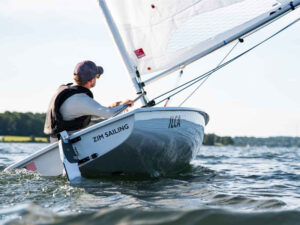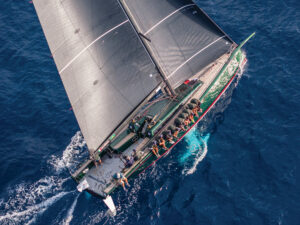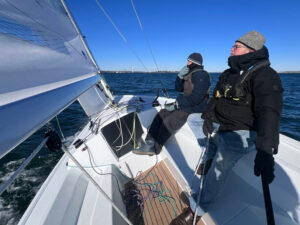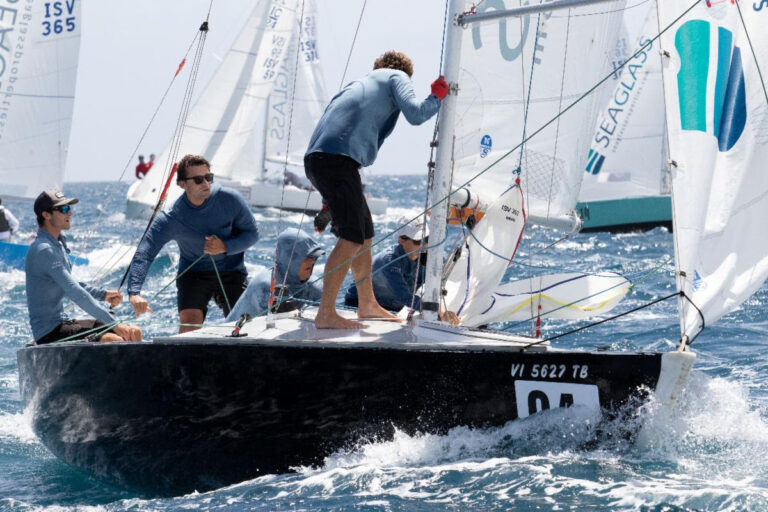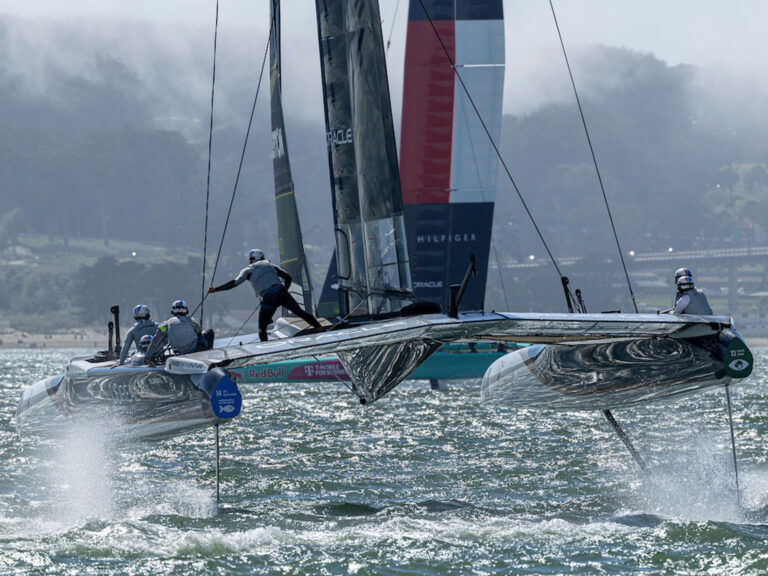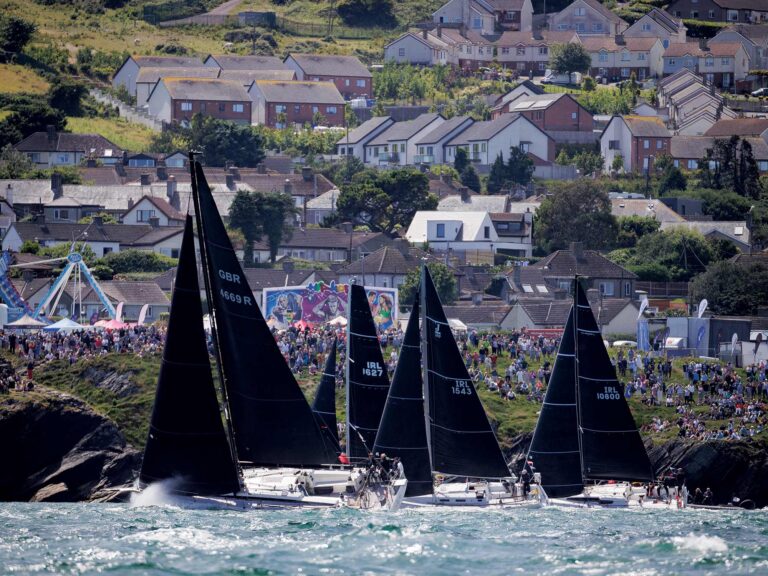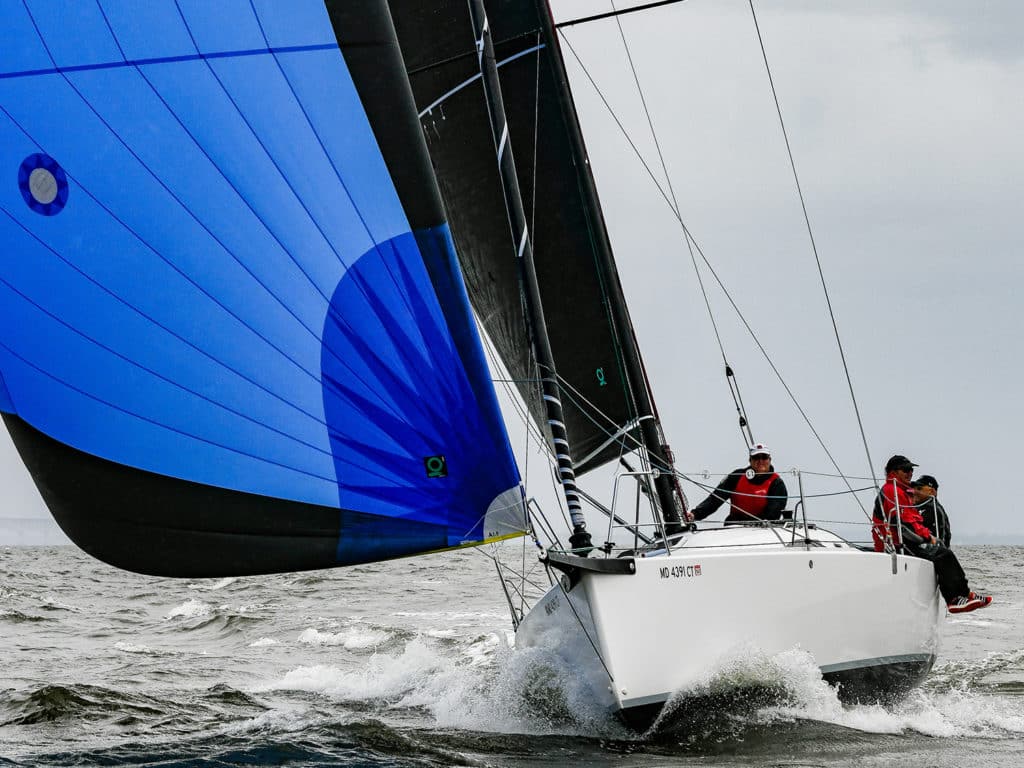
At A Glance
Price As Sailed: $220,000
Design Purpose: Handicap, coastal, shorthanded and club racing
Crew List: Two to six
The J/99 was a favorite and a serious Boat of the Year contender. The judges sailed it on the snottiest day on the week, and as the breeze ratcheted ever higher, the boat, they said, comes alive. They’ve come to expect nothing less of a J Boat, because designer Alan Johnstone is on a roll. For J devotees and owners, of which there are many, the J/99 will feel like home.
“We’ve been missing a sweet spot in the 33- to 35-foot range with a performance boat that combines headroom and accommodations for family sailing, but is also purpose-built for owners aspiring to do doublehanded sailing,” J Boats’ Jeff Johnstone tells the judges.
While tempting to cater to an emerging shorthanded market with a highly specialized boat, he adds, they didn’t want a one-trick pony with the J/99. “That’s not how we, or our owners use our boats,” Johnstone says. “We like a boat that can day sail well, have room for a full crew and set up right for shorthanded sailing.”
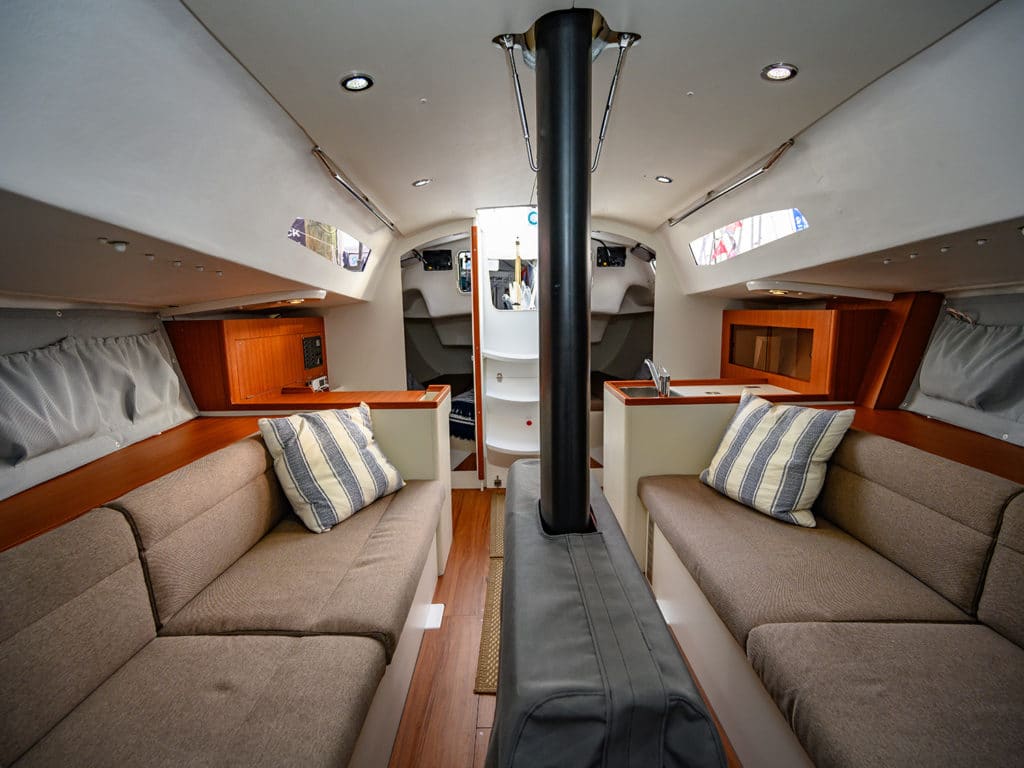
To that end, he points out, everything in the halyard and sail-control department is within reach of the tiller; at the same time, the cockpit can accommodate a busy five- or six-person crew for hustling around the cans.
Johnstone’s preferred model for comparison is the company’s big seller of earlier days. “Think of it as a modern J/105, with more headroom,” he says. “In terms of interior volume, it feels like twice the boat of a 105. But it’s quicker. It’s 2 feet smaller, and it’s more stable. It’s also slippery in light air.”
“It’s a boat that’s as powerful as it is versatile. It’s stiff upwind, and with the controls all led right, it’s a boat you can get a lot out of.” —Greg Stewart
The Johnstones campaigned their stock French-built J/99 in New England with mixed results during the summer of 2019, with a provisional base PHRF rating of 78. Once they learned how to better tune the aluminum rig, Johnstone says they began to realize its true colors: “Our top speed, in 30 knots, [in Cowes, England] with six on board, was 18.5 knots,” he says. “We jibed it four or five times with outside jibes without any problems while boats were wiping out all around us.”
During their test session in Annapolis, the judges got their own taste of what the boat can do in a strong breeze.
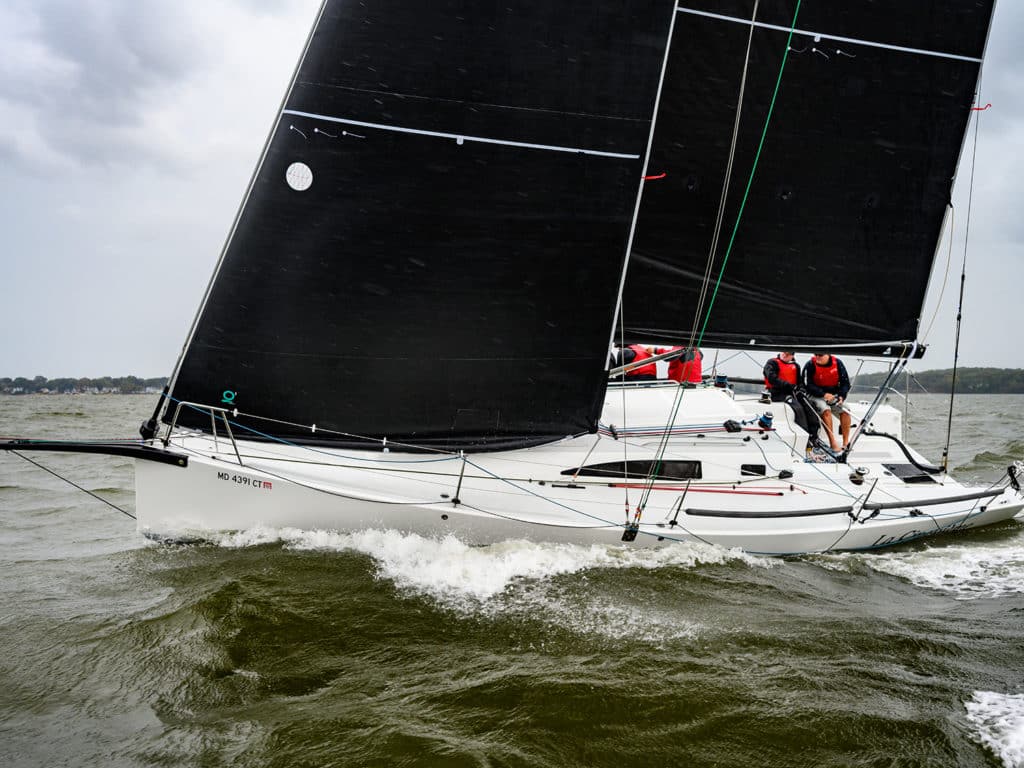
“The boat is wicked stiff,” Allen says. “It’s comfortable to drive, and there’s enough space for the main trimmer to sit right next to you.”
When Stewart finally wrestled the helm away from Allen, he expected to be overpowered, being a few bodies shy of ideal weight on the rail. “With only three on the rail, it settled nicely,” he says. “We got to 7.5 knots upwind with ease, and when we put the kite up, everything all worked fine. It’s all really simple. We got it ripping downwind at 10 to 11 knots easily.”
The interior speaks to the boat’s dual-purpose calling: There are aft cabins and an option for flip-up pilot berths amidships, but the forepeak, with a head only, is left open for sail storage and spinnaker douses. Construction is a mix of balsa and CoreCell in the hull, all of it scrimped and infused.
The tapered mast is aluminum with an extruded mainsail track, which adds considerable stiffness to the rig, Stewart says, while keeping the overall tube‑weight low.
Like the J/111 and J/88 that preceded it, the J/99, he notes, continues a good trend for Corinthian-level owners and teams; it’s a boat that’s as powerful as it is versatile. “It’s not meant to be a strictly reaching kind of boat. It’s stiff upwind, and with the controls all led right, it’s a boat you can get a lot out of.”
At $220,000 all-up, Allen adds, this boat is also an absolute bang for your buck.
See All Winners
Other Winners:

